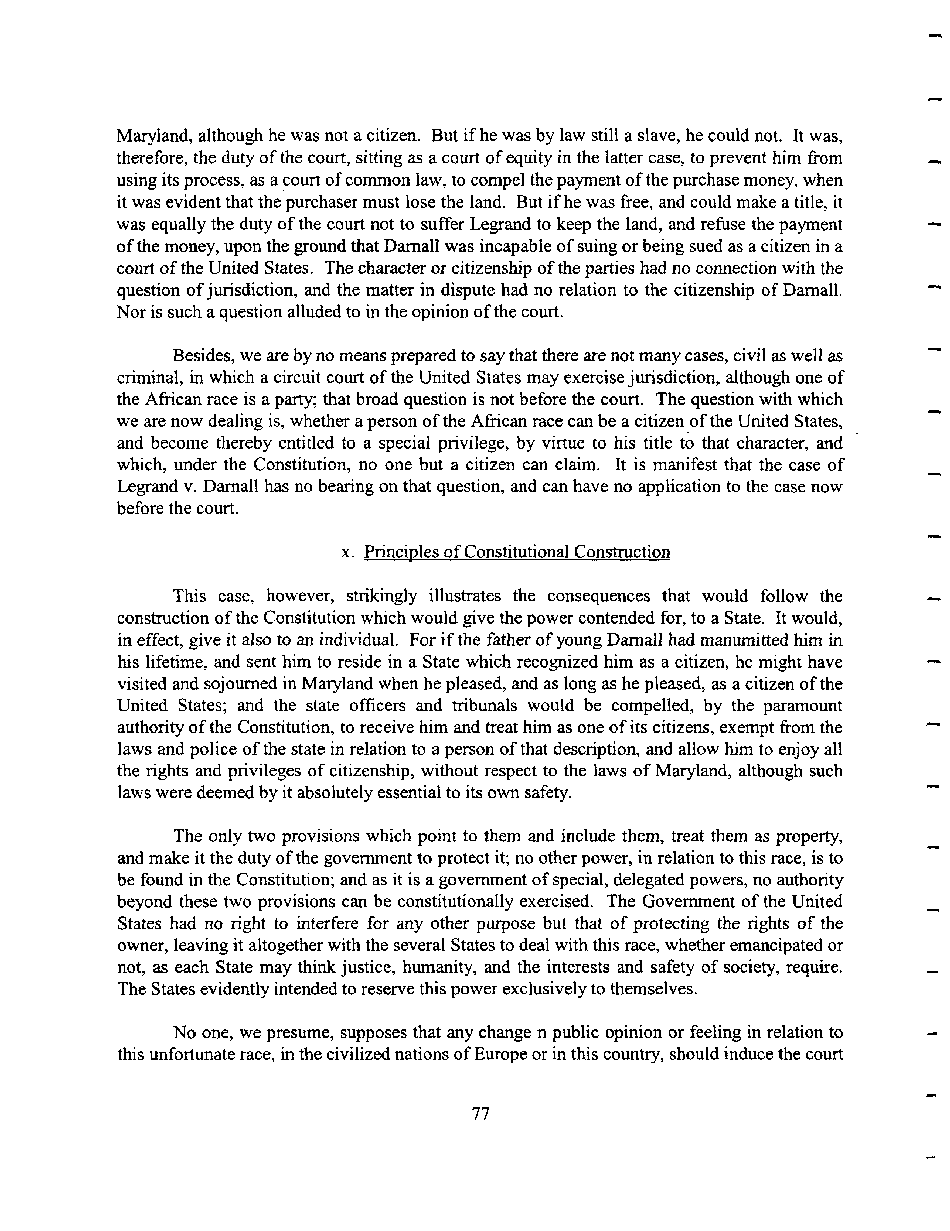|
Maryland, although he was not a citizen. But if he was by law still a slave, he could not. It was,
therefore, the duty of the court, sitting as a court of equity in the latter case, to prevent him from
using its process, as a court of common law, to compel the payment of the purchase money, when
it was evident that the purchaser must lose the land. But if he was free, and could make a title, it
was equally the duty of the court not to suffer Legrand to keep the land, and refuse the payment
of the money, upon the ground that Darnall was incapable of suing or being sued as a citizen in a
court of the United States. The character or citizenship of the parties had no connection with the
question of jurisdiction, and the matter in dispute had no relation to the citizenship of Darnall.
Nor is such a question alluded to in the opinion of the court.
Besides, we are by no means prepared to say that there are not many cases, civil as well as
criminal, in which a circuit court of the United States may exercise jurisdiction, although one of
the African race is a party; that broad question is not before the court. The question with which
we are now dealing is, whether a person of the African race can be a citizen of the United States,
and become thereby entitled to a special privilege, by virtue to his title to that character, and
which, under the Constitution, no one but a citizen can claim. It is manifest that the case of
Legrand v. Darnall has no bearing on that question, and can have no application to the case now
before the court.
x. Principles of Constitutional Construction
This case, however, strikingly illustrates the consequences that would follow the
construction of the Constitution which would give the power contended for, to a State. It would,
in effect, give it also to an individual. For if the father of young Darnall had manumitted him in
his lifetime, and sent him to reside in a State which recognized him as a citizen, he might have
visited and sojourned in Maryland when he pleased, and as long as he pleased, as a citizen of the
United States; and the state officers and tribunals would be compelled, by the paramount
authority of the Constitution, to receive him and treat him as one of its citizens, exempt from the
laws and police of the state in relation to a person of that description, and allow him to enjoy all
the rights and privileges of citizenship, without respect to the laws of Maryland, although such
laws were deemed by it absolutely essential to its own safety.
The only two provisions which point to them and include them, treat them as property,
and make it the duty of the government to protect it; no other power, in relation to this race, is to
be found in the Constitution; and as it is a government of special, delegated powers, no authority
beyond these two provisions can be constitutionally exercised. The Government of the United
States had no right to interfere for any other purpose but that of protecting the rights of the
owner, leaving it altogether with the several States to deal with this race, whether emancipated or
not, as each State may think justice, humanity, and the interests and safety of society, require.
The States evidently intended to reserve this power exclusively to themselves.
No one, we presume, supposes that any change n public opinion or feeling in relation to
this unfortunate race, in the civilized nations of Europe or in this country, should induce the court
77
�
|

